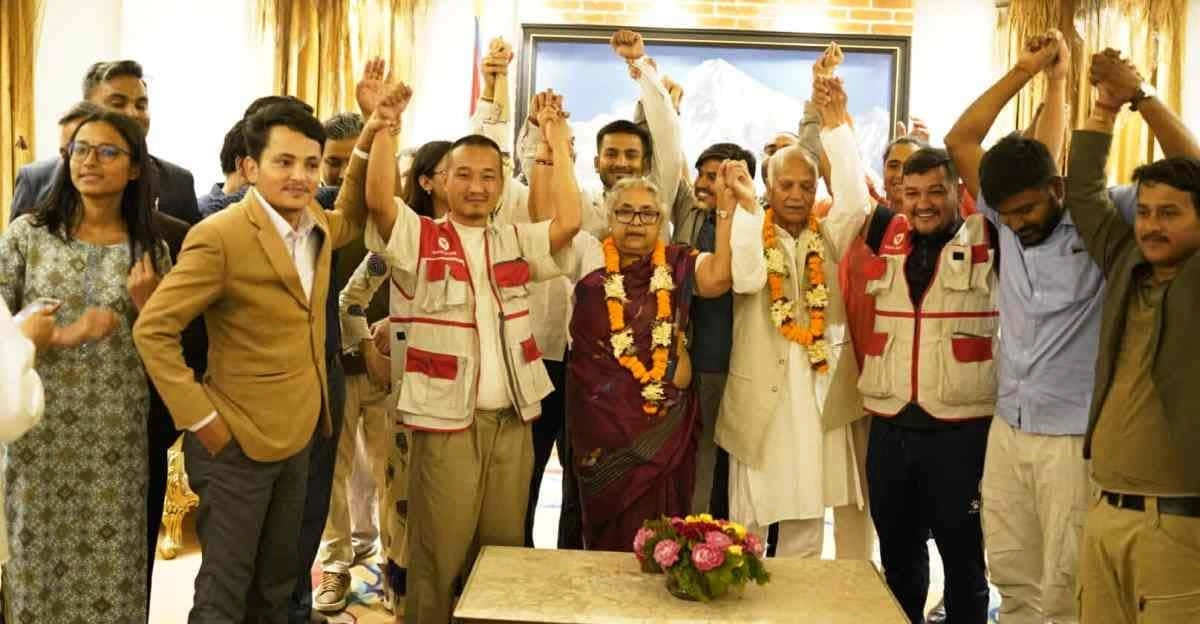In a historic moment for Nepal, Sushila Karki has made her mark as the country’s first woman Prime Minister, taking her oath of office in a ceremony that signifies a significant milestone in the nation’s political landscape. Karki, who previously served as the Chief Justice of Nepal, is known for her commitment to justice and her efforts to promote gender equality within the legal system. Her ascent to this high office represents not only a breakthrough for women in governance but also reflects the ongoing evolution of Nepal’s political framework toward inclusivity and representation.
Karki’s appointment comes at a time when the nation is grappling with various challenges, including economic recovery, political instability, and the need for constitutional reforms. Her extensive legal background and experience as a jurist are expected to bring a fresh perspective to the Prime Minister’s office. Supporters view her leadership as a beacon of hope, particularly for women and marginalized groups who have long been underrepresented in Nepalese politics. Karki’s commitment to social justice and legal reform resonates deeply with many citizens who advocate for a more equitable society.
As she embarks on her tenure, Karki faces the daunting task of uniting a politically fragmented landscape while addressing pressing issues such as poverty alleviation, education reform, and healthcare improvement. Her leadership style, characterized by a collaborative approach and a focus on dialogue, will be crucial in navigating these complex challenges. Moreover, her position as the first female Prime Minister serves as an inspiration to many young women in Nepal, encouraging them to pursue careers in politics and public service.
Karki’s historic oath-taking is not just a personal achievement; it symbolizes a broader movement towards gender equality in political representation. As she leads the nation, her success will be closely monitored, and her policies will be scrutinized. The hope is that her administration will pave the way for future generations of female leaders in Nepal and beyond, ultimately contributing to a more balanced and just society.




